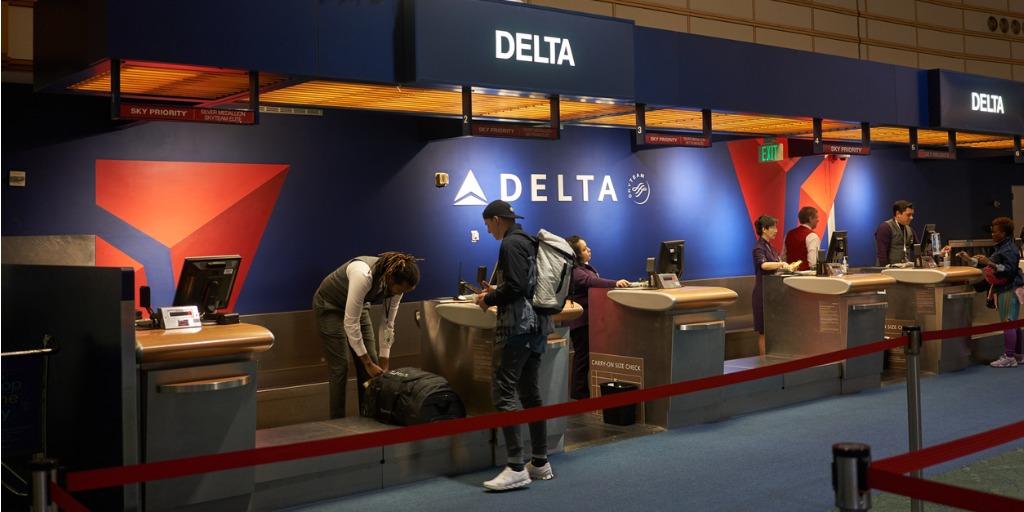Business and Politics in a Polarized Era

Key Takeaways
- Recent controversies over voting rights have highlighted confluence of business and politics.
- But they also illustrate the ways that different political strategies can help or harm businesses.
- In a politically polarized environment, businesses may have to pick a side.
In March, Georgia Republicans passed new a election law designed to suppress voter turnout and give the Republican-controlled state legislature more power over the conduct of elections. Corporate responses to the law reveal divergent strategies and the efficacy of doing something substantive vs. simply issuing a public statement. Companies like Delta Airlines publicly condemned the new law…but only after the law was passed, and without any substantive measures to support the public statement. In contrast, Major League Baseball (MLB) cancelled plans to hold its All-Star Game in Atlanta in protest.
Republican leaders have responded with outrage to both companies and threatened retaliatory legislation and boycotts. Senate Minority Leader Mitch McConnell criticized corporate political action by saying, “I'm not talking about political contributions. Most of them contribute to both sides, they have political action committees, that's fine. It's legal, it's appropriate, I support that. I'm talking about taking a position on a highly incendiary issue like this and punishing a community or a state, because you don't like a particular law that passed. I just think it’s stupid.”
Unintentional comedy of his “just-write-the-checks-and-shut-up” advice aside, Senator McConnell has a point. Businesses have always tried to influence public policy, but tend to so by talking directly to legislators rather than taking a public stand. Campaign contributions buy access that allows them to influence legislation that directly affects their business interests.
In their ideal world, most businesses would probably be happy to stay out of political controversies that do not directly affect them. Would Delta really benefit from taking a public stand on abortion, for example? Silence on a public issue rarely results in consequences. It is hard to get the public riled up over a company not doing something, and research shows that boycotts rarely succeed due to coordination problems, collective action problems and a lack of consumer choices.
Boycotts are more likely in a politically polarized environment, however. When parties are highly polarized, partisans will be more likely to engage and try to force businesses to take a public position. Taking (or failing to take) a position will likely anger one side or the other, which leads to an obvious question: Which side has more customers? As Neureiter & Bhattacharya (2019) demonstrate, a company can actually make money by taking a political position because even if they alienate some customers, they may activate others. Partisans will rush to support a company that sides with them as part of the larger political fight.
MLB, then, had a very easy decision to make. Georgia’s new election law is motivated by the lies about voter fraud surrounding the 2020 election. It is a bad law serving bad faith arguments. The sport has, for years, been trying to increase participation among black youth and just began a large outreach effort working through black churches.
Going forward would have directly undermined those efforts. If MLB had held the All-Star Game in Georgia, as planned, the likelihood of large civil rights protests (and possibly even player boycotts) of the game would have been somewhere between “very high” and “I would literally bet my house on it.” One of the sport’s signature events would have been overshadowed by negative news cycles and raised tensions within the sport.
So, MLB moved the game — which cost them nothing. They made a large, substantive rebuke to Georgia, which ensures the sport will not be tangled in a civil rights controversy. And the move may help them grow their brand in a key demographic.
Delta faced a more difficult choice since they would face real operational costs if they tried to relocate. But their handling of the Georgia controversy leaves them in the worst of all possible worlds — with both sides angry at them. Republicans are clearly angry at the company’s public statements. On the other hand, issuing anodyne press releases after the fact is not going to satisfy activists who point to the company’s ongoing financial support of Republican politicians. Unless companies are willing to take substantive steps like moving business operations or suspending campaign contributions, it is unlikely they will see any positive effects. Meanwhile, Delta may very well suffer from a boycott from both sides.
In a polarized age, the silent neutrality strategy will become less and less viable. Republicans are pushing voting restrictions in dozens of states. Companies like Dell and American Airlines have condemned pending voter suppression legislation, but activists and voters will push them to turn off the money faucet and exercise their lobbying power. Threats to voting rights can have a mobilizing effect in a way few other issues do.
Businesses may not want to be embroiled in political controversies, but they may not have a choice. In this environment, they will have to choose which consumers (voters) they want to side with and take real action to support them. A backlash from one side may be unavoidable, but a company can still make gains if it is willing to do more than shut up and keep writing checks.